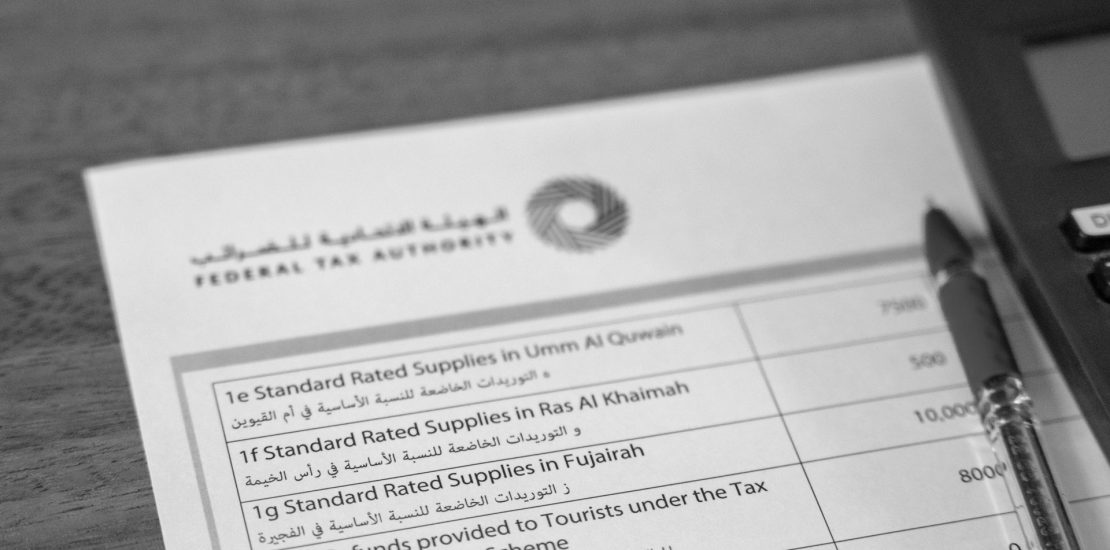Understanding the UAE’s Mutual Agreement Procedure
- 26.06.2025
- Posted by: Malavika Kolera
- Categories: Tax, Dubai

The UAE Ministry of Finance has released comprehensive guidance on the MAP (Mutual Agreement Procedure), a mechanism for resolving international tax disputes. If your business has cross-border activities or international transactions, understanding MAP could save you from costly double taxation scenarios.
What is the Mutual Agreement Procedure?
Think of MAP as a diplomatic solution to tax problems between countries. When you find yourself facing taxation that does not align with a DTA (Double Tax Agreement), MAP provides a formal process for the UAE and other countries to work together and resolve the issue.
The UAE has over 100 DTAs in force with countries worldwide. These agreements are designed to prevent you from being taxed twice on the same income. However, disputes sometimes arise regarding how these agreements should be interpreted or applied.
That is where MAP comes in.
When Should You Consider MAP?
Several common scenarios make MAP particularly relevant for UAE businesses:
Transfer Pricing Adjustments: If the Federal Tax Authority adjusts your transfer pricing on cross-border transactions, you might face economic double taxation. For example, if the FTA increases your taxable profits from transactions with your foreign subsidiary, but the foreign country doesn’t provide a corresponding deduction, you’re essentially paying tax twice on the same profit.
Dual Tax Residency: Some businesses are considered tax residents in multiple countries under different domestic laws. This overlap can lead to double taxation on the same income streams.
Permanent Establishment Disputes: If there’s disagreement about whether your business activities in another country constitute a permanent establishment, or how profits should be attributed to that establishment, MAP can help resolve these complex allocation issues.
The guidance also covers situations involving anti-abuse provisions and general anti-abuse rules that might conflict with DTA provisions.
The MAP Process and Key Requirements
To file a MAP claim, you must provide comprehensive documentation including business structure details, specific tax issues, relevant fiscal periods, and supporting evidence. For transfer pricing cases, thorough transfer pricing documentation and economic analysis are essential. Most importantly, you must demonstrate that you qualify as a “person” under the relevant DTA and that the taxation you’re facing violates the agreement’s provisions. Timing is crucial, as most UAE DTAs require submission within three years of the first notification. However, you can file proactively if you anticipate an adjustment based on previous assessments. Once submitted, the UAE Competent Authority aims to respond within two months and will either provide unilateral relief or enter bilateral negotiations with the foreign competent authority.
Considerations and Outcomes
During the MAP process, you cannot simultaneously pursue domestic legal remedies, such as court proceedings or Tax Dispute Resolution Committee appeals. However, you can file MAP claims while these options remain available to protect against time limits. Your tax liability remains payable throughout the process; however, successful MAP agreements can result in refunds of excess payments and adjustments to related penalties. Notably, penalties for domestic law breaches typically will not be adjusted. If competent authorities cannot reach an agreement, some DTAs provide arbitration as a final resolution mechanism. The key is understanding that MAP offers a diplomatic solution to international tax disputes, but requires careful preparation, timing, and often means choosing between MAP and domestic remedies.
The UAE's Commitment to Fair Tax Resolution
MAP represents a collaborative approach to international taxation, showing the UAE’s broader strategy of maintaining strong diplomatic and commercial relationships worldwide. For businesses, it offers a structured pathway to resolve complex tax issues without resorting to costly and time-consuming litigation in multiple jurisdictions.
The key is recognizing when MAP might be relevant to your situation and acting within the required timeframes. With proper preparation and understanding of the process, MAP can be an effective tool for managing your international tax obligations and avoiding the burden of double taxation.
TME Services - Your Complete Business Partner
Our comprehensive services are designed to support you every step of your business journey:
- Company Formation: We guide you through all aspects of setting up your company, whether in a free zone or on the mainland, ensuring you choose the best option for your business.
- Visa and Emirates ID Services: We streamline the process of securing visas and Emirates IDs for you and your employees, allowing you to focus on your business operations.
- Accounting: Our team ensures your business stays compliant with local financial regulations, which is crucial for maintaining good standing in Dubai’s business community.
- Tax: We help manage Dubai’s tax environment, ensuring your business remains compliant while optimizing your tax position.
- Business Consulting: Leveraging our deep understanding of Dubai’s market, we provide valuable insights and help you develop effective strategies to succeed.
Visit our services page to learn more about everything we do.